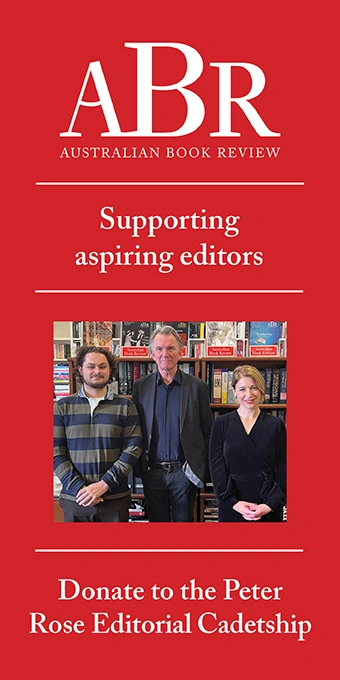Christopher Allen

Christopher Allen is currently Senior Master in Academic Extension at Sydney Grammar School. He is the national art critic for The Australian.
At the beginning of Hamlet (Act I, sc. 3, 177 ff.), Laertes warns Ophelia against becoming too attached to the young prince.
… his will is not his own; For he himself is subject to his birth:He may not, as unvalued persons do,Carve for himself; for on his choice dependsThe safety and health of this whole state;And therefore must his choice be circumscribedUnto the voice and yielding of that ... (read more)
Oswyn Murray’s book The Muse of History is subtitled ‘The Ancient Greeks from the Enlightenment to the present’, but this period of some three centuries represents virtually the whole of the modern historiography of Greece. The primary reason for this is one that is easily forgotten today: from the medieval to the early modern period, Greek civilisation, with its literature and art, was main ... (read more)
The gods of the Greeks are uniquely anthropomorphic; they are not only imagined with human bodies but with thoughts and feelings largely similar to our own, except for the fact that they cannot grow old or die, and are thus spared the greatest part of human pain and suffering. They can feel anger at the misbehaviour, or pity for the fate, of mortals, as when Zeus sees that his beloved son Sarpedon ... (read more)
It is easy to be complacent about the Greeks. We know they invented democracy, philosophy, drama, the principle of free speech and other things that we value highly; but how often do we read the works of Homer and Hesiod, of Aeschylus, Sophocles and Euripides, of Herodotus and Thucydides, of Plato and Aristotle? How often do we reflect that the Greeks gave the West the very idea of literature? The ... (read more)
The history of art history in the West over the past five hundred years is rich and complex and yet rests on clear historiographical foundations, themselves grounded in inescapable historical realities. Authors and artists in the Renaissance looked back to the civilisation of Greco-Roman antiquity, all but lost in the catastrophe of the fall of the Roman Empire and succeeded by centuries of dramat ... (read more)
Giotto’s frescoes invite us to ponder the nature of what we instinctively, conveniently, but not very satisfactorily call realism. Compared to the work of his predecessors, these images have a new kind of material presence. Bodies become solid, take on mass and volume, and occupy space. Those in front overlap with and partly occlude our view of those behind, for Giotto wants to set them in the s ... (read more)
There are cases in which it seems, on the face of it, unambiguously right to restore stolen or misappropriated cultural objects to their original setting or at least to their last known address: we can think of the lamentable looting of museums and archaeological sites during the wars in Afghanistan, Iraq, and Syria, and the riots of the pitifully misnamed Arab Spring. And yet because their origin ... (read more)
France’s higher education system can seem arcane to outsiders, especially those from the English-speaking world. Although the Sorbonne is coeval with Oxford and Cambridge, there is far greater prestige in attending one of the Grandes Écoles such as Polytechnique or the École Normale Supérieure, only accessible by notoriously difficult entrance examinations. Perhaps even less familiar is the C ... (read more)
Mary Beard’s new history of Rome, reviewed here in March 2016, ended at the point where Edward Gibbon began his great Decline and Fall of the Roman Empire, in what he called the happy age of the Antonines. That is also where Michael Kulikowski takes up the story in this book, the first of two intended volumes, although, as he admits, he will not follow Gibbon all the way to the Turkish conquest ... (read more)




